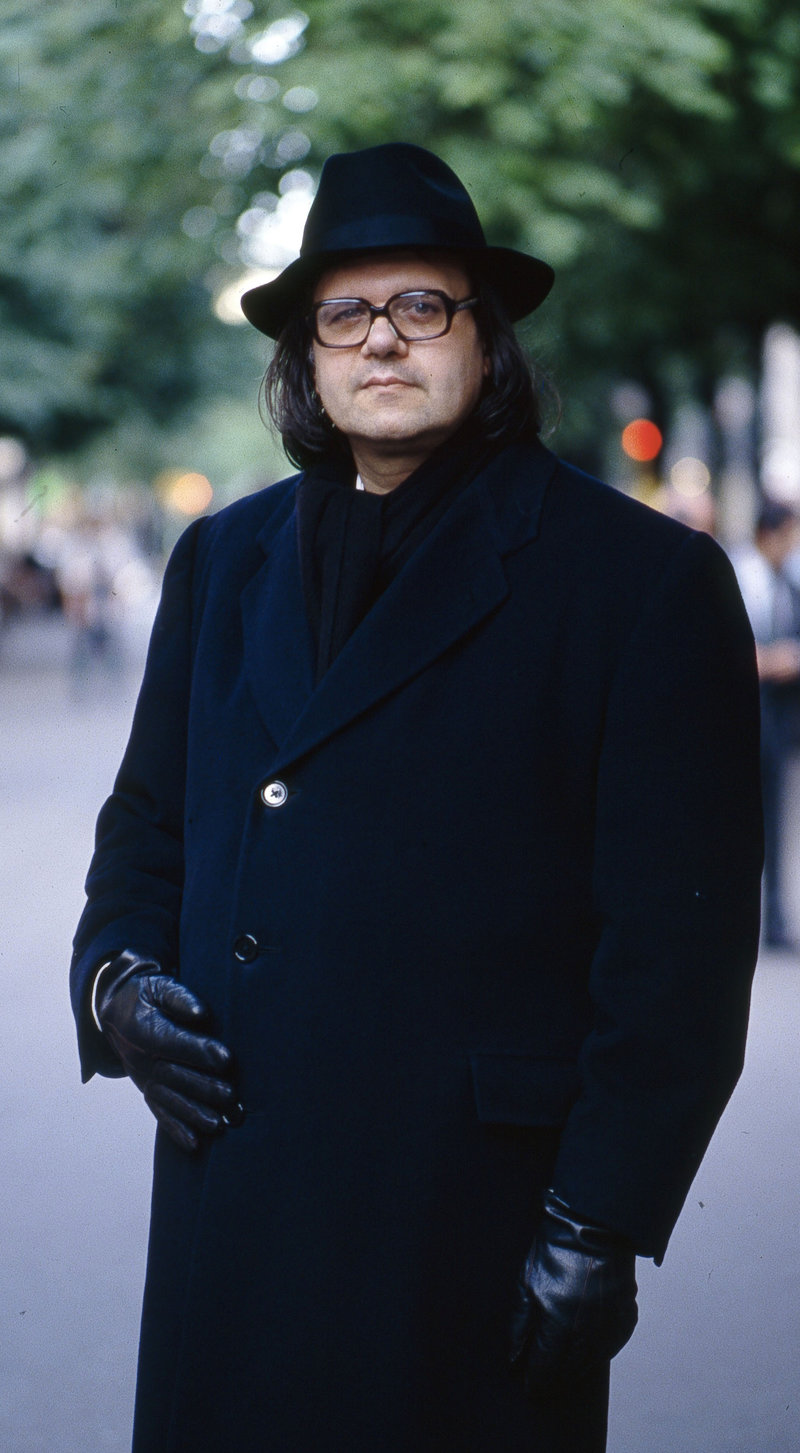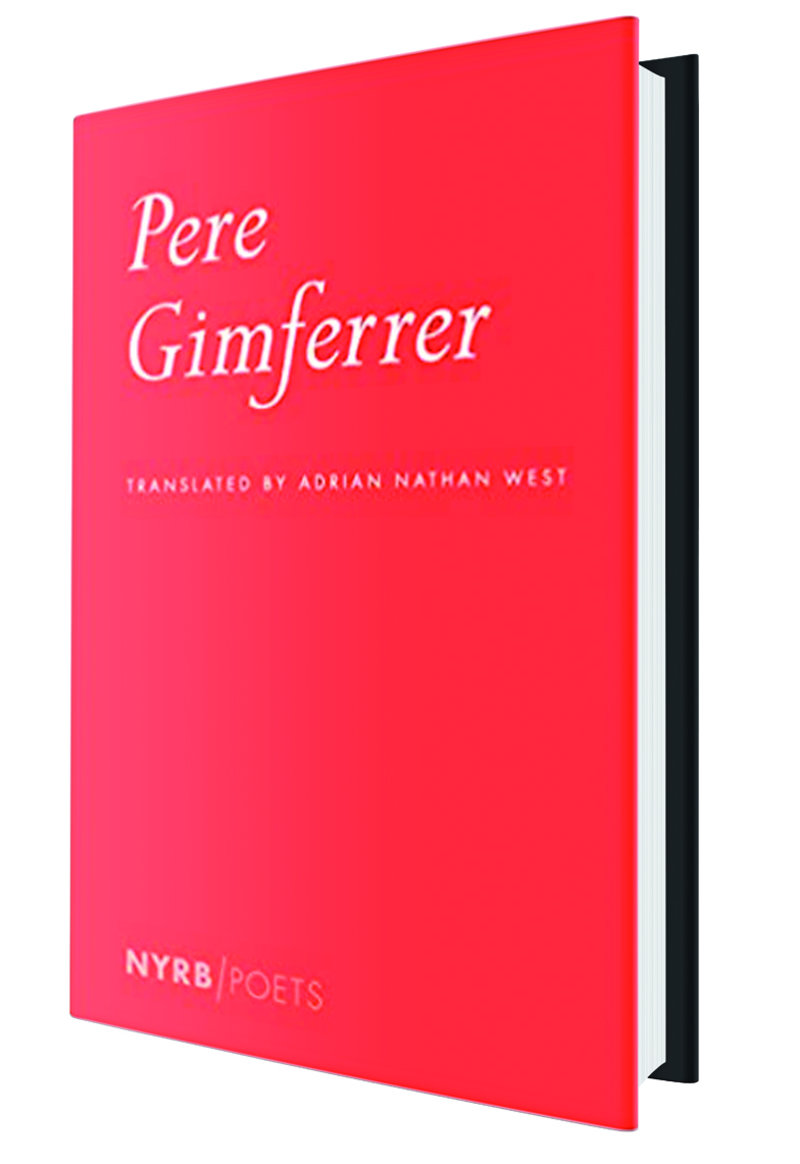Poetic vigour
This selection, made by the translator, covers over 50 years of Pere Gimferrer’s varied, lyrical, avant-garde poetry. The very young Gimferrer was a fresh voice in the 1960s, part of Catalonia’s cultural resurgence, setting fire to the straitjacket of the dictatorship with verbal fireworks
Gimferrer’s was a post-war generation and he was able to free himself of the obligation felt by the ’social poets’ of the 1950s to tackle the miseries of the dictatorship. This does not mean that Gimferrer ignored the dictatorship in his work. What it does mean is that he did not feel forced by the dictatorship’s very existence to write against it. In this selection, Tròpic de Càncer and Tròpic de Capricorn are lengthy ruminations on the recent past. By looking critically at his Catholic childhood, he was attacking implicitly the dictatorship, which allowed no criticism. His poetry connects to the Spanish modernist poets of the Generation of 1927, who were killed, exiled and dispersed by Franco. And he is alive to the international surrealist and symbolist traditions of Catalan poets like Foix before the Civil War. In both Spanish and Catalan poetry, Gimferrer was re-connecting to pre-Civil War styles and traditions.
No Ivory Tower
Gimferrer’s personality and absolute commitment to poetry have made him the subject of numerous anecdotes. Nate West, the poet’s translator to English, mentions the story that he does not know how to peel an apple (why anyone should wish to peel an apple is another question). The reason for his extreme impracticality was:
…that Pere had decided from an early age, in view of the uncertainty of life and the inevitability of death, that there wasn’t time for everything, that what he really loved was literature, and hence that he would live in such a way that he was forced to devote as little time as possible to other matters.
The image of a high-minded poet secluded in the ivory tower of beautiful language is false. He could hardly have written the long poem Mascarada (1996) on love and sex in Paris if he had remained in his tower. His poems have criticised Felipe González and talked of Che Guevara, Jean Harlow or George Soros. Gimferrer is an erudite lletraferit (lover of letters); and he is immersed in mass culture.
One should add that Gimferrer himself cultivates the pure-poet image, with his long overcoat, thick black glasses to match a wide black hat and white scarf. Though I knew nothing of his writing, I knew the public persona. But who knows? Someone so concerned to project an image may well be engaged in a (playful or serious) bit of misdirection. Masks and mirrors are common images in his work.
As well as political complaints, inevitably there are linguistic questions asked of Gimferrer. He started off publishing in Castilian. Arde el mar (The Sea Aflame) won Spain’s National Poetry Prize when he was only 20. He switched to Catalan in 1970 with Els miralls (Mirrors), then early this century he published poems in Castilian again. He sidesteps the political implications of these changes. Poems, he avers, occur to him in one language or another. “Italian is also one of my languages,” he said with provocative insouciance when in 2014 he published Per risgardo (With Regard), his poems in Italian. This collection contains poems in all three languages - on the left-hand page, with the English translation on the right - and from every stage of his career.
Cryptic inscriptions
The book after Arde el mar was the long (28 pages here) Death in Beverly Hills (1968), a poem taking formal liberties, without rhyme and with different lengths of line. Here’s an example:
In the phone booths
are cryptic inscriptions written in lipstick.
They are the last words of the sweet blondes
with blood in their cleavage, taking refuge there to die.
Last night beneath the pale neon, last day beneath the dazzling sun,
streets recently sprayed with magnolia, yellow headlights of patrol cars at dawn. (p.51)
Note the surreal images, the luscious, lyrical language, the powerful pictures from popular culture. Meaning is ’cryptic’, though, like the words written in lipstick. This is to say that it is often not easy to understand what Gimferrer is talking about. He packs his poems with literary and film allusions and a lot of rare words (Nate West said he was driven often to the dictionary, but many were not even there), but the main reason is that this poetry does not aim to present rational argument. Gimferrer himself said:
My aspiration is not in the least that the reader understand everything… , but only that the result of it prove stimulating.
Nate West added that Gimferrer is quite approving of loose translations, but what he values above all is that West maintains in English the original’s ’poetic vigour’. We are in the realm of poetry not logic. What stimulates, and gives pleasure, is rhythm, sound, allusion and associations. His language flows, the words flash and sparkle. Despite the poet’s image as an aesthete, there is no languor in the poetry.
In this final paragraph, let me wind the article back a bit. Gimferrer’s not just about images and language. Of course there are ideas, too. He said that Death in Beverly Hills is “my saddest book, in that its theme is nostalgia and the defenceless need for love”. In the poem, set in the capital of dreams, the young man discovers that life is not eternal, but leads to death. He seeks to recover the lost moments of love. I picked up this book in ignorance of Gimferrer, but put it down wanting to read more.
I found very useful, and recommend for any reader as ignorant of Gimferrer as I was, the presentation of this selection at the Community Bookstore, Brooklyn, on May 25, 2021. You will find it on-line at www.youtube.com/watch?v=HzRiv5M-H6E
book review
Gimferrer knows everything
Pere Gimferrer i Torrens (born 1945) is Catalonia’s best-known living poet, author of over 30 books. Nearly all are poetry, but one is Fortuny, a novel on the three famous generations of the Fortuny family. The youngest, the dress designer Fortuny i Madrazo, was subject of last month’s book review in these pages.
In 1970 Gimferrer was included in Josep Maria Castellet’s famous anthology of young poets reacting against the social poetry fashionable in the 1950s, Nueve novísimos poetas españoles (Nine very new Spanish Poets).
He was elected to Spain’s Royal Academy in 1985 and was awarded the National Literature Prize for a lifetime’s work in 1998. He won the National Poetry Prize for a second time in 1988 for El vendaval (The Gale). As well as all the poetry and the novel, he has published books of his articles, mainly of literary criticism.
He spent most of his working life at the publisher Seix Barral, where he promoted, among many others, the then unknown Roberto Bolaño, whose view of his omnivorous and obsessive editor was: “Gimferrer is a great poet and also knows everything.”




